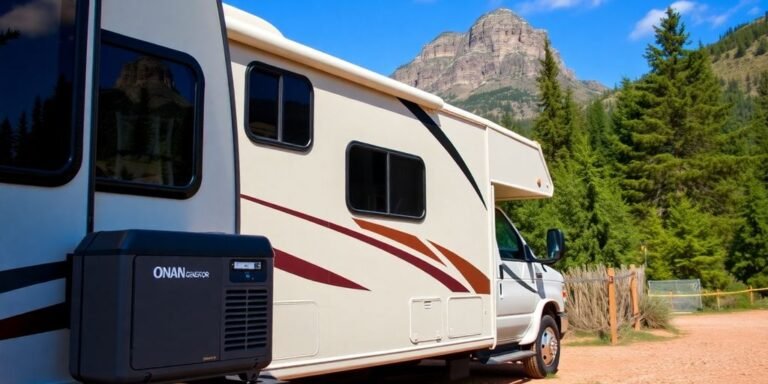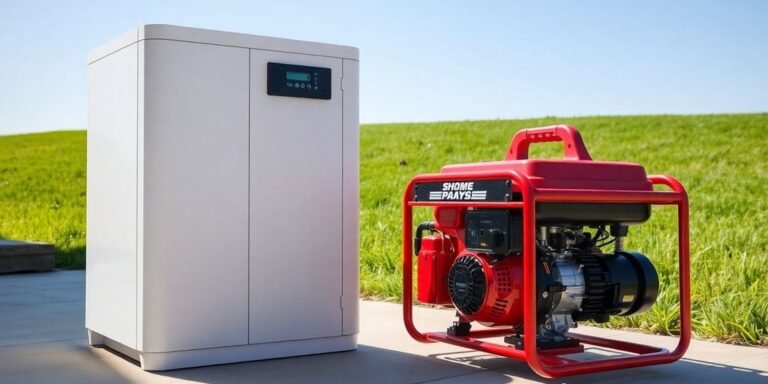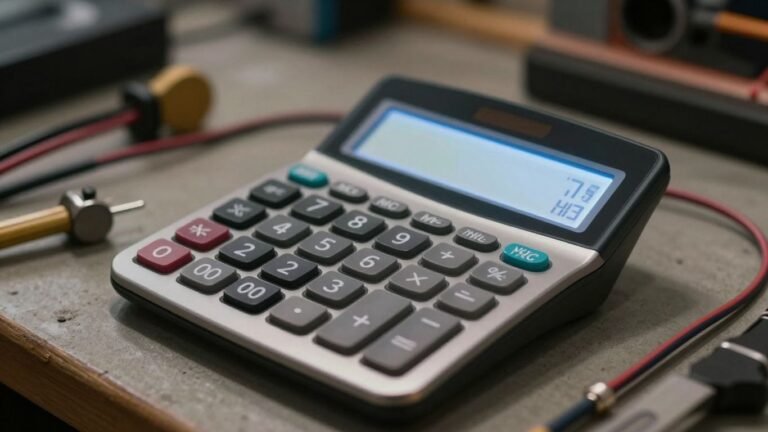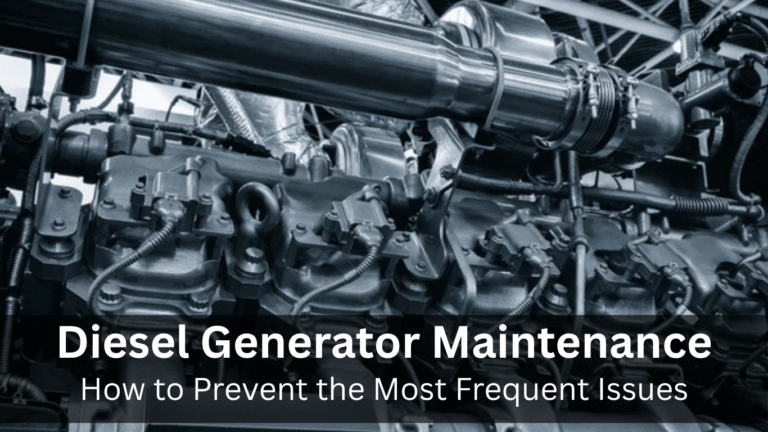Trifuel Generator Overview: Your Complete Resource for Versatile Energy
Ever thought about what happens when the power goes out? It’s a real pain, right? But what if you could keep things running with a single machine that uses three different kinds of fuel? That’s where a trifuel generator comes in. These things are pretty cool because they give you options, whether it’s for emergencies or just powering your stuff when you’re off-grid. We’re going to talk all about them, from what makes them tick to how to pick the best one for you and keep it working great.
Key Takeaways
- A trifuel generator runs on gasoline, propane, and natural gas, giving you lots of fuel choices.
- Before buying, figure out how much power you really need and if an inverter model is better for you.
- Always make sure your generator is in a spot with good airflow to avoid bad fumes.
- Regular checks and oil changes help your trifuel generator last a long time.
- Knowing how to troubleshoot simple problems can save you a lot of hassle.

Understanding the Trifuel Generator Advantage
What is a Trifuel Generator?
Okay, so what is a trifuel generator? Simply put, it’s a generator that can run on three different types of fuel: gasoline, propane, and natural gas. This flexibility is the main selling point. Unlike generators that are limited to just one or two fuel sources, a trifuel generator gives you options, which can be super handy depending on what’s available and affordable. It’s like having a backup plan for your backup plan. You can find a PGMA compliant Tri-Fuel Portable Generator for maximum flexibility.
Benefits of Trifuel Versatility
The versatility of a trifuel generator brings a bunch of benefits to the table. Let’s break it down:
- Fuel Availability: If gasoline is scarce (think natural disasters), you can switch to propane or natural gas. This is a big deal for emergency preparedness.
- Cost Savings: Fuel prices fluctuate. You can choose the cheapest fuel source at any given time to save money. Propane and natural gas are often cheaper than gasoline, especially in the long run.
- Cleaner Burning: Propane and natural gas generally burn cleaner than gasoline, which means fewer emissions and less wear and tear on the generator’s engine. This can extend the life of your generator.
- Convenience: Natural gas can be directly hooked up to your home’s supply, eliminating the need to store fuel. Propane can be stored in tanks, offering a good balance of storage and availability.
Having multiple fuel options means you’re less likely to be caught off guard during a power outage or other emergency. It’s about having control and peace of mind.
Key Components of a Trifuel Generator
While a trifuel generator looks similar to other generators, there are some key differences in its components:
- Fuel Selector Switch: This is how you choose which fuel source the generator will use. It’s important to select the correct fuel before starting the generator.
- Multiple Fuel Inlets: Trifuel generators have different inlets for gasoline, propane, and natural gas. These inlets are designed to safely connect to each fuel source.
- Fuel Regulator: This component regulates the pressure of the incoming fuel, ensuring that the engine receives the correct amount of fuel for efficient operation. Propane and natural gas require different pressure levels than gasoline.
- Carburetor/Fuel System: The carburetor (or fuel injection system in newer models) is designed to handle different fuel types. It mixes the fuel with air to create a combustible mixture. Some models have adjustable carburetors to optimize performance for each fuel type. Understanding the advantages of Tri Fuel Inverter Generators is important for choosing the right one.
Choosing the Right Trifuel Generator

Assessing Your Power Needs
Okay, so you’re thinking about getting a trifuel generator? Smart move. But before you jump in, you gotta figure out exactly how much power you actually need. Don’t just guess! Think about everything you might want to run at the same time during an outage or while you’re out camping. Lights, fridge, maybe a TV, and definitely your phone charger, right? Add up the wattage of all those things. It’s better to overestimate a little than to end up with a generator that can’t handle the load.
Here’s a quick way to estimate:
- List all the appliances/devices you want to power.
- Find the wattage of each (usually on a sticker on the device).
- Add up all the wattages.
- Add a safety margin (20% is a good start) for startup surges.
Don’t forget about startup wattage! Some appliances, like refrigerators and air conditioners, need a lot more power to start than they do to run continuously. Make sure your generator can handle those surges.
Inverter vs. Conventional Trifuel Generators
Alright, so you know how much power you need. Now, let’s talk about the type of generator. You’ve basically got two choices: inverter and conventional. Conventional generators are usually cheaper, but they don’t produce the cleanest power. That’s fine for some things, but if you’re planning on running sensitive electronics like laptops or smartphones, you’ll want an inverter generator. Inverter generators produce a much cleaner, more stable power output. They’re also generally quieter and more fuel-efficient. Think of it this way: conventional generators are like a sledgehammer, while inverter generators are like a precision tool. For sensitive electronics, you need the precision. If you want to compare tri-fuel inverter generators, this is a good place to start.
Top Features to Look For
So, what should you be looking for when you’re actually shopping for a trifuel generator? Here’s a quick rundown:
- Electric Start: Trust me, you don’t want to be yanking on a cord when the power’s out and you’re already stressed. Electric start is worth the extra money.
- Fuel Gauge: It’s nice to know how much fuel you have left, especially if you’re running it for a long time.
- Low Oil Shutdown: This is a safety feature that will automatically shut off the generator if the oil level gets too low. It can save you from damaging the engine.
- Multiple Outlets: The more outlets, the better. You’ll probably want a mix of 120V and 240V outlets.
- Portability: If you plan on moving the generator around a lot, look for one with wheels and a handle. Weight matters too!
Consider the noise level too. Some generators are much quieter than others. If you’re using it for camping or in a residential area, a quieter model will be much appreciated. Also, check the warranty. A longer warranty is always a good sign. And finally, read reviews! See what other people are saying about the generator before you buy it.
Fueling Your Trifuel Generator
Propane Considerations for Trifuel Generators
Propane is a popular fuel choice for trifuel generators, especially for those seeking a readily available and relatively clean-burning option. One of the main advantages of propane is its long shelf life, making it ideal for emergency backup power. However, it’s important to understand propane-specific considerations:
- Tank size matters. Determine how long you need the generator to run and choose a tank size accordingly. Smaller tanks are portable but require more frequent refills.
- Propane vaporizes, so cold weather can affect its performance. Consider using a tank warmer in extremely cold climates.
- Always store propane tanks outdoors in a well-ventilated area, away from any potential ignition sources.
Propane provides a reliable fuel source, but remember that its energy density is lower than gasoline. This means you’ll typically need more propane to generate the same amount of power, impacting runtime.
Natural Gas Hookup and Usage
Using natural gas with your trifuel generator offers the convenience of a continuous fuel supply, eliminating the need for refills. However, it requires a proper and safe connection to your home’s natural gas line. Here’s what you need to know:
- Professional installation is highly recommended. A qualified technician can ensure the connection meets all safety codes and regulations.
- You’ll need a natural gas supply line with sufficient pressure to meet the generator’s demands. Check your generator’s specifications and consult with a professional to verify compatibility.
- Consider the location of your natural gas meter and the generator’s placement to minimize the length of the gas line.
| Fuel Type | BTU per Gallon | Advantages | Disadvantages |
|---|---|---|---|
| Natural Gas | 126,666 | Continuous supply, often cheaper than propane or gasoline, cleaner burning | Requires professional installation, lower energy density than other fuels |
| Propane | 91,500 | Readily available, long shelf life, portable | Lower energy density than gasoline, can be affected by cold weather |
| Gasoline | 125,000 | High energy density, widely available | Short shelf life, requires fuel stabilizer, potential for spills and fumes |
Gasoline Storage and Safety
Gasoline is a common fuel for generators due to its high energy density and widespread availability. However, gasoline presents unique storage and safety challenges:
- Gasoline has a limited shelf life. It can degrade in as little as 3-6 months, leading to starting problems and reduced performance. Use a fuel stabilizer to extend its lifespan.
- Store gasoline in approved containers, away from heat, sparks, and open flames. A well-ventilated, detached shed is ideal.
- Never store gasoline inside your home. The fumes are flammable and can pose a serious health hazard.
- When handling gasoline, avoid spills and wear appropriate safety gear, such as gloves and eye protection.
- Always turn off the generator and allow it to cool completely before refueling. Spilled gasoline on a hot engine can ignite.
Consider off-grid fuel storage solutions to ensure a reliable power supply during outages.
Operating Your Trifuel Generator Safely

Proper Ventilation and Placement
When it comes to trifuel generators, safety starts with where you put it. Never, ever run a generator indoors or in a partially enclosed space like a garage. Carbon monoxide poisoning is a real danger.
Here’s what to keep in mind:
- Always operate the generator outdoors.
- Place it at least 20 feet away from your house, windows, and doors.
- Make sure the exhaust is pointed away from any buildings or occupied areas.
I remember this one time, my neighbor thought he could get away with running his generator just inside his garage with the door cracked open. Luckily, his carbon monoxide detector went off, and he was okay, but it was a close call. Don’t make the same mistake!
Starting Procedures for Trifuel Generators
Starting a trifuel generator isn’t rocket science, but you need to follow the steps. First, make sure you’ve got the right fuel connected and the generator is on a level surface. Then:
- Check the oil level. Low oil can damage the engine.
- Connect the fuel source (propane, natural gas, or gasoline).
- Turn on the fuel valve.
- Set the choke to the start position.
- Start the generator according to the manufacturer’s instructions (usually a pull start or electric start).
- Let the generator warm up for a few minutes before connecting any loads.
Emergency Shutdown Protocols
Knowing how to stop your generator quickly in an emergency is just as important as knowing how to start it. Familiarize yourself with the shutdown procedure before you ever need to use it. Here’s the general idea:
- Disconnect all loads from the generator.
- Turn off the fuel valve.
- Turn the generator’s engine switch to the “off” position.
In case of a fuel leak or fire, get away from the generator and call the fire department immediately. It’s also a good idea to have a fire extinguisher nearby, just in case. Consider a propane generator for your home.
Maintenance Tips for Longevity
Keeping your trifuel generator in tip-top shape is key to ensuring it’s ready when you need it most. Think of it like your car – regular maintenance prevents bigger problems down the road. I’ve learned this the hard way with other equipment, so now I’m all about preventative care.
Routine Checks and Inspections
Regular checks can save you a lot of headaches. I usually do a quick once-over before and after each use, and then a more thorough inspection every few months. Here’s what I look for:
- Fuel Lines: Check for cracks or leaks. Fuel leaks are dangerous and can cause performance issues.
- Air Filter: A dirty air filter restricts airflow, reducing efficiency. Clean or replace as needed.
- Spark Plug: Inspect the spark plug for wear or damage. A faulty spark plug can make starting difficult.
- Overall Condition: Look for loose bolts, damaged wiring, or any other signs of wear and tear. Tighten or repair as necessary.
It’s easy to overlook these simple checks, but they really do make a difference. A little bit of attention can prevent major breakdowns.
Oil Changes and Filter Replacements
Oil is the lifeblood of your generator’s engine. Regular oil changes are crucial for keeping everything running smoothly. I try to change the oil every 50-100 hours of use, or at least once a year, even if I haven’t used it much. Here’s a quick guide:
- Check the Oil Level: Before each use, make sure the oil level is within the recommended range.
- Use the Right Oil: Refer to your generator’s manual for the correct type and weight of oil.
- Change the Oil: Warm up the engine, then drain the old oil and replace the oil filter. Refill with fresh oil.
- Dispose of Oil Properly: Take used oil to a recycling center or auto parts store.
Don’t forget about the oil filter! Replacing it during each oil change helps keep the oil clean and extends the life of your engine. You can also replace the engine oil every six months.
Winterizing Your Trifuel Generator
If you live in an area with cold winters, winterizing your generator is a must. Cold weather can cause fuel to thicken and make starting difficult. Here’s what I do to prepare my generator for winter:
- Fuel Stabilizer: Add fuel stabilizer to the fuel tank to prevent fuel from breaking down during storage.
- Drain the Fuel: If you’re not planning to use the generator for several months, drain the fuel tank and carburetor to prevent gumming.
- Store Indoors: If possible, store the generator in a dry, sheltered location to protect it from the elements.
- Battery Maintenance: If your generator has an electric start, consider using a battery tender to keep the battery charged during the winter months. A fully charged battery is essential for reliable starting.
By following these maintenance tips, you can keep your trifuel generator running smoothly for years to come. It’s all about being proactive and taking care of your investment.

Troubleshooting Common Trifuel Generator Issues
Diagnosing Starting Problems
So, your trifuel generator won’t start? Annoying, right? First things first, check the fuel. Seriously, is there any? Make sure the fuel valve is open and that you’ve got enough propane, natural gas, or gasoline. Next, inspect the spark plug. A dirty or damaged spark plug is a common culprit. Clean it or replace it if needed. Also, don’t forget to check the battery if your generator has electric start. A weak battery can prevent the engine from turning over. If all else fails, consult the owner’s manual for specific troubleshooting steps related to your model.
Addressing Power Output Fluctuations
Is your generator’s power output all over the place? That’s not good. Power fluctuations can damage sensitive electronics. Start by checking the air filter. A clogged air filter can restrict airflow and affect engine performance. Clean or replace it as necessary. Next, examine the fuel lines for any kinks or blockages. A restricted fuel supply can cause inconsistent power output. Also, make sure you aren’t overloading the generator. Check the wattage of the appliances you’re running and compare it to the generator’s rated output. If you’re exceeding the limit, reduce the load. If the problem persists, it might be an issue with the generator’s inverter (if equipped) or the voltage regulator, which may require professional attention.
Resolving Fuel System Malfunctions
Fuel system problems are a pain, but often fixable. If you suspect a fuel system issue, begin by inspecting the fuel filter. A dirty fuel filter can restrict fuel flow and cause starting problems or poor performance. Replace it if it’s clogged. Next, check the fuel pump. If the fuel pump isn’t working properly, it won’t deliver fuel to the engine. You can test the fuel pump using a multimeter to check for voltage.
Furthermore, examine the carburetor for any signs of dirt or varnish buildup. A dirty carburetor can cause a variety of fuel-related problems. Clean the carburetor using a carburetor cleaner. If you’re using propane or natural gas, check the regulator for any leaks or damage. A faulty regulator can cause fuel pressure issues. If you’re not comfortable working on the fuel system yourself, it’s best to take the generator to a qualified technician.
Remember to always disconnect the spark plug wire before working on the fuel system to prevent accidental starting. Safety first!
Comparing Trifuel with Other Generator Types
Trifuel vs. Dual Fuel Generators
Okay, so you’re looking at generators, and you’re probably seeing a bunch of different options. Let’s break down trifuel versus dual fuel. Dual fuel generators typically run on gasoline and propane. Trifuel generators, on the other hand, add natural gas to the mix. This gives you more flexibility, especially if you have a natural gas line already installed at your house.
Think of it this way:
- Convenience: Dual fuel is good, but trifuel is better if you want all the options.
- Fuel Availability: Natural gas is often cheaper and more readily available during emergencies (if you have a connection).
- Cost: Dual fuel generators might be slightly cheaper upfront, but trifuel could save you money in the long run depending on fuel prices.
Trifuel vs. Gasoline-Only Generators
Gasoline-only generators are the most common type you’ll find. They’re usually cheaper to buy initially, but they have some serious drawbacks compared to trifuel models. First off, gasoline goes bad. If you’re storing a generator for emergency use, that’s a problem. Second, gasoline isn’t always easy to get during a power outage. Lines at the gas station can be long, and stations might even run out. Trifuel generators give you options. If gasoline is scarce, you can switch to propane or natural gas. Plus, propane and natural gas store much better than gasoline. You can easily find a tri fuel inverter generator that fits your needs.
Why a Trifuel Generator Stands Out
So, why should you even consider a trifuel generator? It really comes down to versatility and peace of mind. You’re not stuck with one fuel source. If one fuel is unavailable or too expensive, you can switch to another. This is especially useful for people who live in areas prone to power outages. Plus, natural gas and propane are generally cleaner-burning fuels than gasoline, which can extend the life of your generator and reduce emissions. It’s a bigger investment upfront, sure, but the flexibility and long-term benefits often make it worth it.
A trifuel generator offers a significant advantage in terms of fuel source flexibility. This adaptability ensures continuous power supply during emergencies or in situations where specific fuel types are scarce or costly. The ability to switch between gasoline, propane, and natural gas provides a level of resilience unmatched by single-fuel generators.
Wrapping Things Up
So, that’s pretty much the rundown on trifuel generators. They’re a good choice for lots of situations, giving you options when it comes to fuel. You can pick what works best for you, whether it’s gas, propane, or natural gas. It’s about having power when you need it, and these generators definitely help with that. Think about what you need a generator for, and see if a trifuel model fits the bill. They’re pretty handy to have around.

Frequently Asked Questions
What exactly is a trifuel generator?
A trifuel generator is a special kind of power machine that can run on three different types of fuel: gasoline, propane, and natural gas. This makes it super flexible because you can pick the best fuel for your situation, whether it’s an emergency or just everyday use.
Why should I choose a trifuel generator over others?
Trifuel generators are awesome because they give you choices. If one fuel type is hard to find or too expensive, you can switch to another. This means you’re less likely to be without power, which is a big deal during storms or blackouts.
How do I know what size trifuel generator I need?
To figure out the right size, think about what you want to power. Make a list of all the lights, appliances, and tools you might need to run at the same time. Then, check the power (wattage) each item uses. Add them up, and that total will help you pick a generator strong enough for your needs.
Is it safe to use a trifuel generator indoors?
Yes, it’s very important! Always use your generator in a well-ventilated area, like outdoors, far away from windows and doors. This is because generators make carbon monoxide, a gas you can’t see or smell, which can be very dangerous if it builds up indoors.
What kind of upkeep does a trifuel generator need?
Keeping your trifuel generator in good shape means checking it regularly. This includes changing the oil, cleaning or replacing the air filter, and checking the spark plugs. Doing these simple things will help your generator last longer and work better when you need it.
What should I do if my trifuel generator won’t start?
If your generator isn’t starting, first check that it has enough fuel and that the fuel lines aren’t blocked. Make sure the spark plug is clean and connected. If it’s still not working, it might be a good idea to look at the user manual or call a professional for he









3 Comments